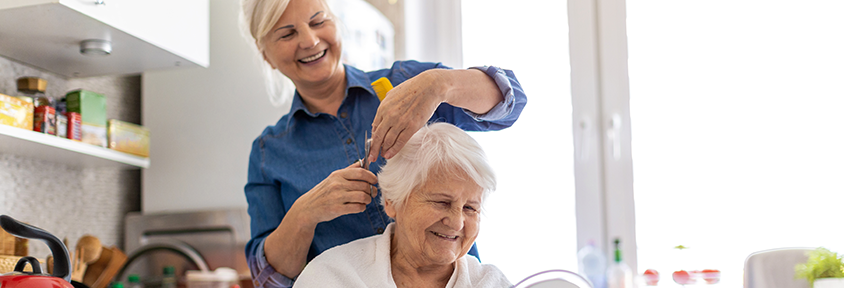St. Luke's Health-Memorial is committed to excellence and a very important part of that commitment is the safety of our patients. Patients who take an active part in their care during their hospital stay tend to do better and stay safer. With you as part of our team -- working together with the nurses, physicians and other hospital staff -- we can make your stay as safe as possible. The following are some suggestions to make your stay a safe and positive one.
ASK QUESTIONS
- Ask questions if you do not understand.
- Ask for an interpreter if you are deaf, hearing impaired or if English is not your primary language by contacting your nurse or hospital personnel, or dial ext. 7699 after 5 p.m.
- Write down questions that you would like to ask your physician when he/she visits.
GET THE MOST FROM YOUR TREATMENT
- Ask your nurse and physician about your treatment plan.
- Ask a family member to be present when you and the health care professionals are discussing your treatment plan, medications and discharge plans.
- Be informed about your treatments. If you do not understand, ask.
- Question anything that seems unusual or different from what you were told.
IDENTIFY YOURSELF
- Wear your hospital ID band at all times. If it comes off, ask for another one.
- Check the information on the band and make sure it is correct. If not, please ask someone to change it to the correct information.
- Make sure all staff checks your ID band before any procedure or test and/or when they administer medications.
HELP PREVENT THE SPREAD OF GERMS
- Hand-washing is the best way to prevent the spread of germs.
- Practice good personal hygiene.
- The staff will welcome your reminder to wash their hands or wear gloves before examining you or giving you medication.
- Ask friends and relatives who have colds, respiratory symptoms, or other contagious illnesses not to visit you or anyone in the hospital.
- Get your vaccinations! Flu and pneumonia vaccines can help prevent illnesses.
GET THE MOST FROM YOUR MEDICINES
- Ask about your medicines -- what they are, what they look like, what they do, when they are given, and what side effects you can expect.
- If you do not recognize a medicine, make sure you ask about it.
- Tell your health care professional about any allergies you have.
- Tell your health care professional about any medications -- prescription, over-the-counter, or herbal -- that you are taking or have taken in the last 30 days.
- Please do not take your medications you brought from home unless you are told by the physician or hospital staff that it is okay.
BE ALERT FOR SITUATIONS IN WHICH YOU COULD EXPERIENCE A FALL
- Ask for help getting out of bed, especially at night.
- Always leave a night light on in unfamiliar hospital rooms.
- Make sure the nurse call button works and you understand how to use it.
- Keep your eyeglasses within reach, and wear rubber sole slippers or socks supplied by the hospital when getting out of bed.
- Notify staff of any spills or wet spots in the floor.
- Before standing, sit on the side of your bed until you no longer feel dizzy or weak, then rise carefully and walk slowly, with caregiver assistance only.
- Do not support yourself on rolling objects such as IV poles or bedside tables.
- Always follow your doctor’s or caregiver’s directions about staying in bed or requiring assistance going to the bathroom.
- Walk close to the wall and hold onto the handrail while in the bathroom.
- Do not tamper with side rails or protective devices that may be in use. These are reminders to stay in bed and are designed to ensure your safety. If these need adjusting, ask your nurse.
PERSONAL ITEMS
- Pay attention to where you place your dentures, hearing aids and eyeglasses as they are important to your comfort and well-being.
- Ask for a denture cup if you need one.
- Make sure your name is on any case that stores your dentures, hearing aids and eyeglasses.
PREPARE YOURSELF FOR WHEN YOU GO HOME
- Make sure you understand your discharge instructions, including medications and follow-up visits.
CONTINUE SAFE PRACTICES AT HOME
- Talk with your doctor and pharmacist, ask questions and write down what they say.
- Keep a phone or bell near your bed if you might need help.
- Never smoke in bed.
- Be careful with oxygen at home. It is highly flammable.
- Use a grounded or three-prong connector for any home medical equipment you need and never use an extension cord for them.


